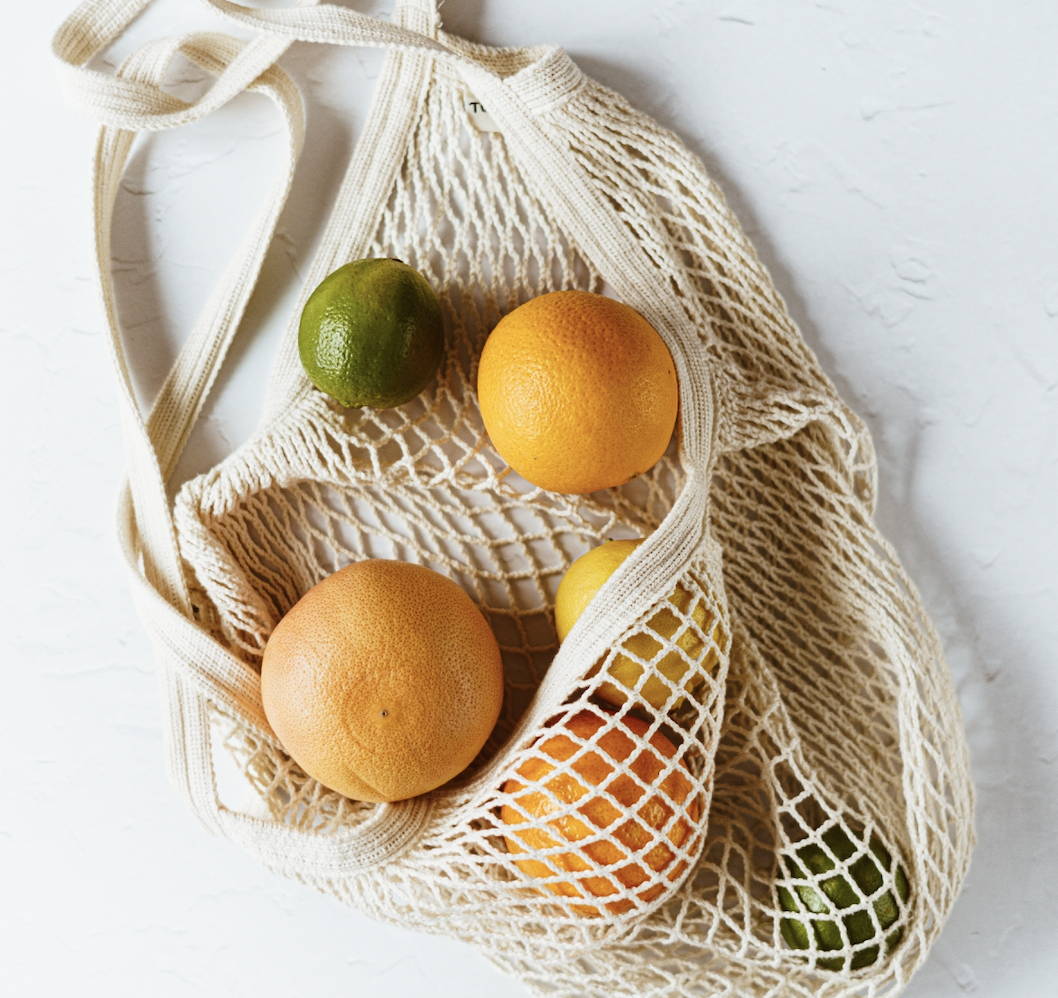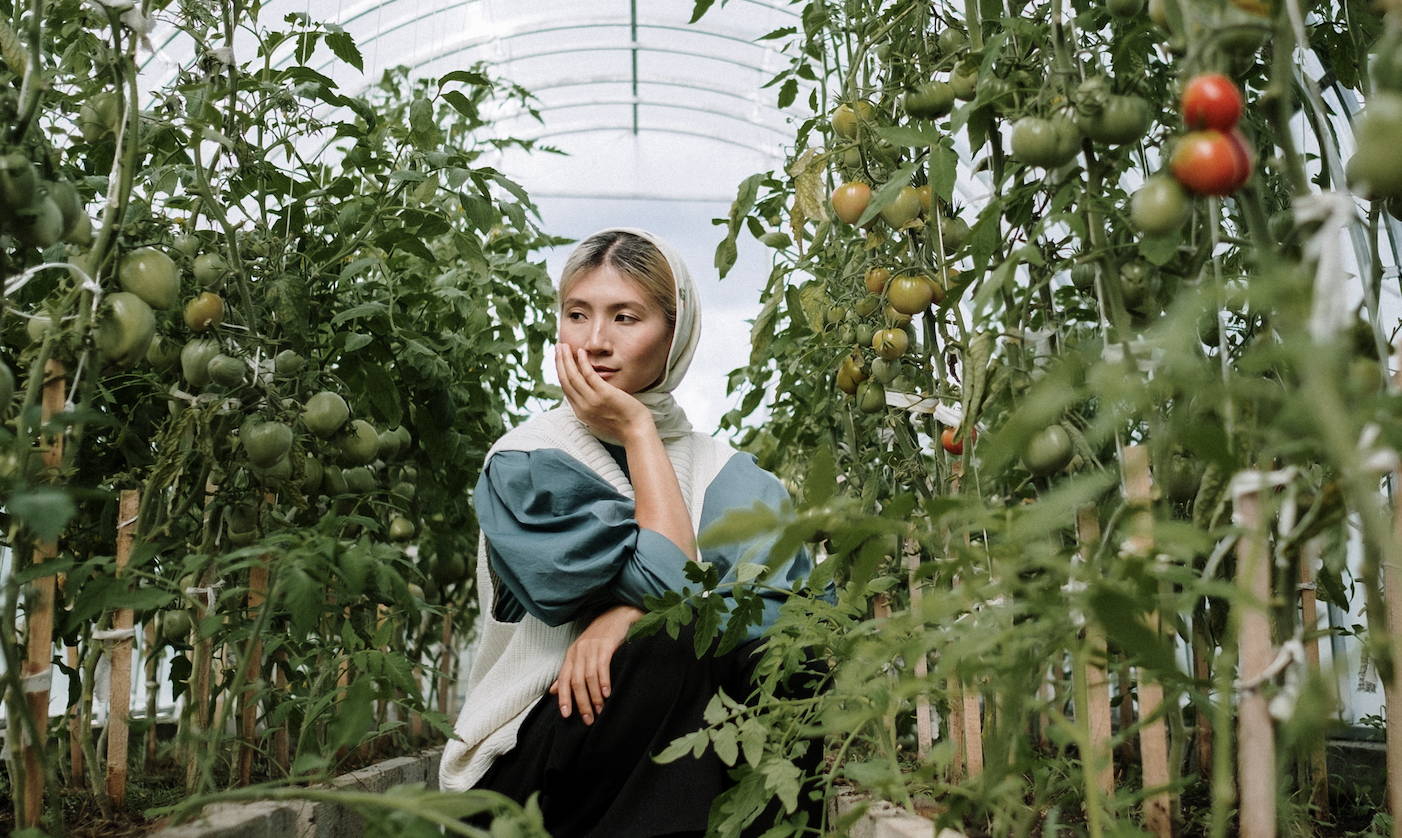The hidden truths behind
organic food
13 september '22
Reading time: 7 minutes
If you're mindful of your impact on the planet and disagree with conventional agricultural practices, you may have considered switching to eating organic food. But simply buying organic won't solve everything wrong with our food system.
Words by Alice Constantino

Greenwashing is a hot topic issue in the fashion industry with more and more companies coming out with ‘green’ clothing lines or initiatives without addressing the industry’s harmful practices. But it’s not just happening in fashion. Green labeled foods have become increasingly common in supermarkets, the most common being the organic label, which attests that the product was made with crops grown without synthetic pesticides or herbicides. This may seem like a good thing at first, but the food industry like the fashion industry has wasted no time figuring out how to make organic labels coexist with the same cost- and time-saving measures that cause the many issues with conventional agriculture. Is buying organic still worth it, or is it another example of greenwashing?
What’s the meaning of green labels?
The organic label is awarded according to precise and strict regulations, which vary slightly among countries. For instance, the EU requires that organic animal products be made from animals fed on local organic feed, while the USA doesn’t have regulations on the animal feed. However, as we will see, a product being certified organic doesn’t necessarily mean it was sustainably grown. On top of that, very often organic food lines are owned by the same conglomerates as regular food. For instance, Horizon, which makes organic milk and eggs, is owned by Dean Foods – the largest dairy conglomerate in the world which employs industry standard practices that are seen as harmful to the environment and cruel to animals – who also uses its significant power to lobby for lowering the standards of organic labels. The list goes on, with Honest Tea being owned by Coca Cola, Whole Foods by Amazon, Cascadian Farms by General Mills, and even regular brands like Nestlè having specific organic lines for their products.
Additionally, there is an abundance of ‘green’ labels besides "organic," many of which don’t have nearly as strict requirements. A 2014 article in the Journal of Business Ethics noted how the verification processes for these labels can sometimes be very lax, with some being verified by bodies or individuals that do not need to have any specific accreditation or qualifications. Consumer Reports has created a database at greenerchoices.org to document every green label, with a report on the relative meaningfulness of each one.
Is organic food actually better for the planet?
One of the most cited reasons for buying organic is that organic crops are grown without synthetic pesticides, which supposedly makes them more sustainable and less noxious to the soil. However, organic agriculture still uses other kinds of pesticides and fertilizers, many of which still have negative effects on the environment regardless of their ‘natural’ origin. What’s more, because the industry-strength synthetic fertilizers are not allowed, organic crops grow less quickly and abundantly.This increases the amount of land that needs to be fertilized for agriculture in order to produce the same amount of crops compared to conventional agriculture. Some estimates put organic crops as yielding 40% less than regular ones. Because many Western countries have regulations in place in order to cap the amount of virgin land that can be cultivated, it is not uncommon for food conglomerates to simply move their crops to countries with more lax environmental laws. The USDA has even been accused of awarding the organic label to products made by companies who contribute to deforestation in the Amazon. On top of that, the requirements for organic-labeled food to have been grown on land that has been free of synthetic pesticides for a number of years (the specific regulations change between countries) has encouraged companies to simply buy and cultivate virgin land instead of repurposing already cultivated land.

What’s the human cost?
One thing that is rarely brought up when talking about green labels is the labor and human rights of farmers. Time Magazine described farm work as one of the most exploitative and dangerous jobs in the 21st century. Farm workers have high rates of injury due to often unsafe working conditions, experience high food insecurity, receive poor compensation and struggle with very poor housing conditions. This is partly due to the fact that they are frequently migrants, unregistered and thus unprotected by labor laws.
The organic label does not have any requirements related to labor or human rights, so working conditions are not any better on organic farms compared to conventional ones. On top of that, organic farming even has some unique drawbacks. The use of natural, and therefore weaker, herbicides requires more weeding by hand and therefore demands more physical, backbreaking labor, as does the fact that organic crops yield much less (as discussed above).
Despite all this, producers of organic food seem rather indifferent to the conditions of the people growing their crops. For instance, a poll conducted among organic farmers in California (reported on the Race, Poverty & the Environment journal) noted that they were “lukewarm, at best” about acquiring social certifications, and only 24.5% agreed that the organic label should include criteria on working conditions. And buyers of organic food don’t seem to be very interested either, at least not enough to make the food industry pay attention.
Because of the way our food production system works, there is no perfect, pure solution that will eliminate our negative impact on the planet. As consumers, what we can do to do less harm to the environment we’re living in is to inform as much as possible, be aware of how systems work and take conscious decisions which impact less than other choices and options available in the market.



































